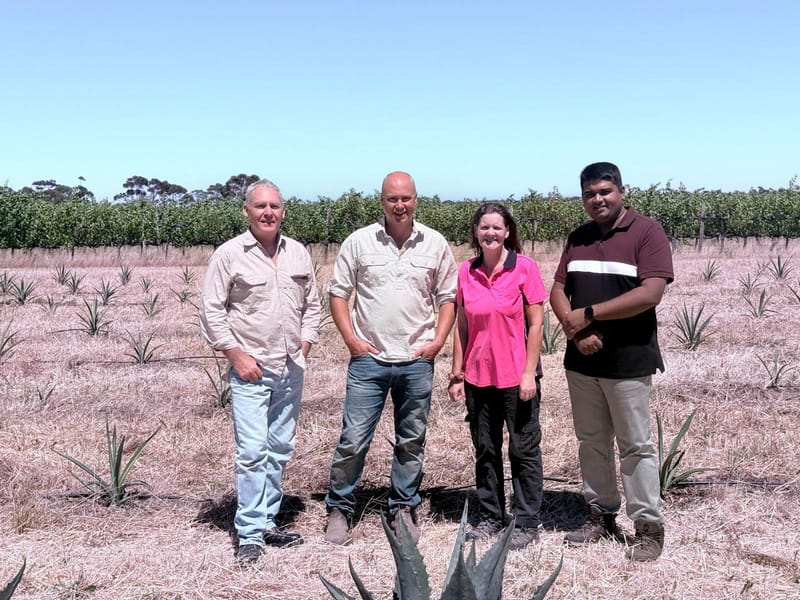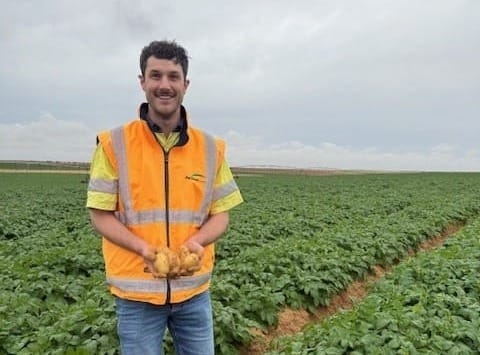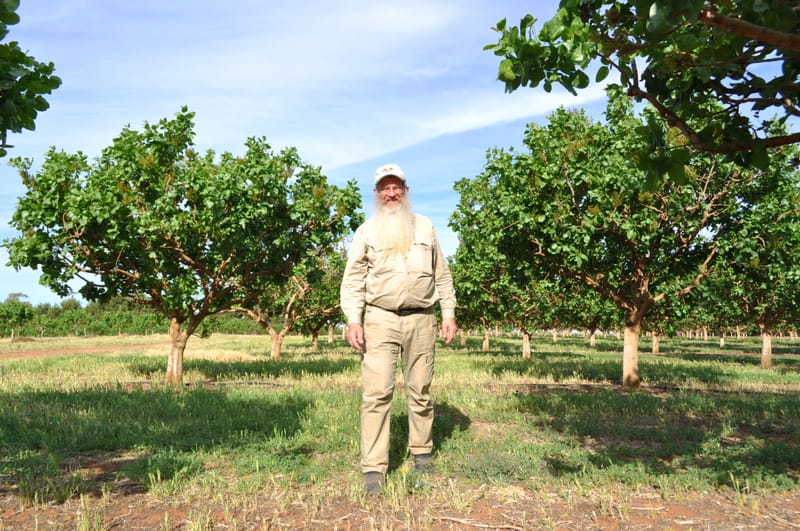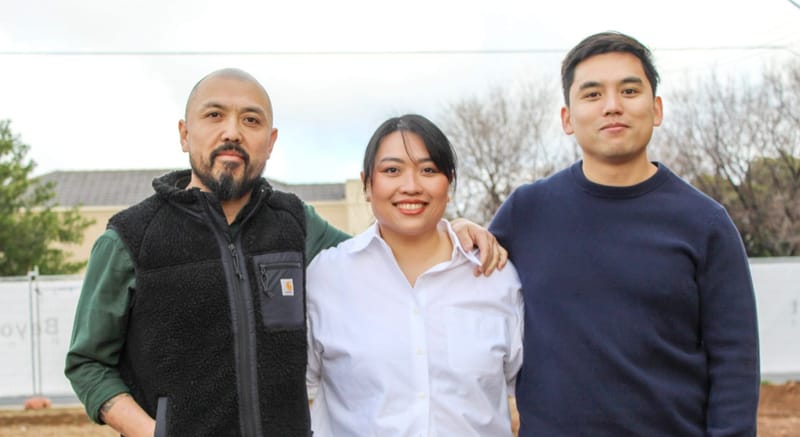How injury led to new passion for former defence force member
BAROSSA-born Wade Kingsley (pictured) has followed in the footsteps of his grandmother by pursuing an interest in floristry after sustaining serious injuries while serving in the defence force.
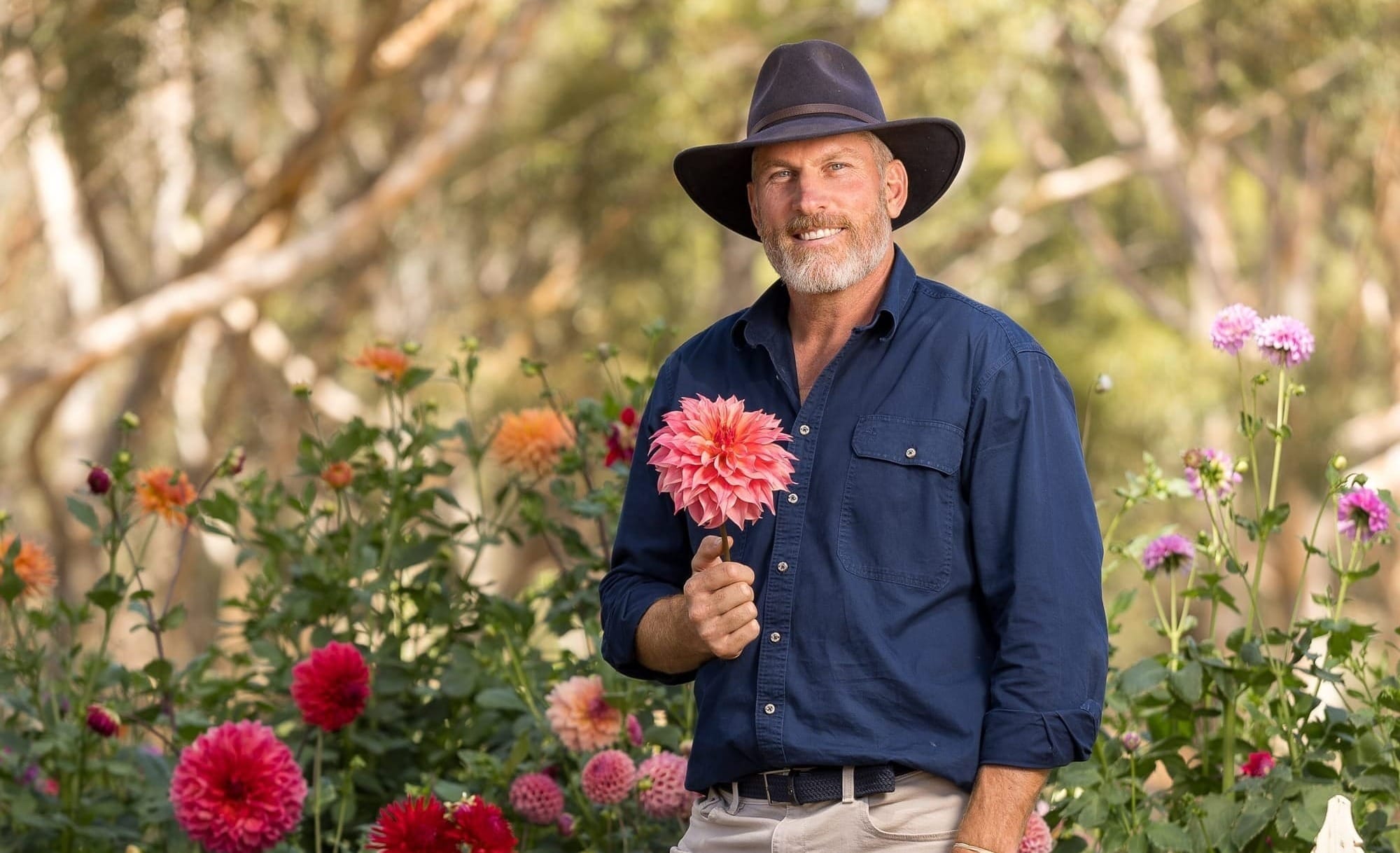
BAROSSA-born Wade Kingsley (pictured) has followed in the footsteps of his grandmother by pursuing an interest in floristry after sustaining serious injuries while serving in the defence force.
Mr Kingsley has started The Hidden Flower Farm, at the historic Marananga School site.
The Hidden Flower Farm is a boutique dahlia farm set to welcome its first visitors in December 2025, and is inspired by his grandmother, who created simple floral gifts for nursing homes. It is set to become a destination for both locals and visitors.
Mr Kingsley said injuries he sustained while serving in the defence force rekindled his passion for gardening.
“I injured myself during a combat exercise and it turned my life upside down,” he said.
“I went from a highly intensive role to a lot of downtime and not being able to move much, and it was really tough.
“I was restricted and spent a lot of time at home. When I was able to get outside, I spent the time in the garden.
“That rekindled my love for gardening, horticulture and flowers, and it spiked an interest.
“I decided to revisit studies as a mature age in horticulture and floristry, and I came across a company in the US called Floret. It inspired me to start growing different flowers and that’s where it all started.”
Mr Kingsley said the Barossa held some very special memories, making the location for The Hidden Flower Farm sentimental.
“I grew up in the Barossa Valley and although I’ve lived and worked interstate and overseas, I’ve always felt connected with the rolling hills, natural beauty and unique soils that the Barossa hosts for its farmers,” he said.
“Generations of farmers have tended to and cared for their land, and sustainable farming is a way of life here.
“Being a prominent tourism location, flower farmers have the ability to supply produce to local farmers markets, host pick-your-own events, conduct floral workshops, have farmgate sales, host seasonal events, and provide their produce direct to wholesalers, florists, bed and breakfasts, resorts, and a myriad of retailers who call the Barossa home.”
Mr Kingsley said that dahlias held a special place in his heart.
“Yes, in my first season at The Hidden Flower Farm the dahlia Carlos watermelon stood out for me,” he said.
“It’s one of those flowers that stops people in their tracks. It’s classed as a medium decorative dahlia, the colours of which are incredible, soft pinks with hints of coral and watermelon tones that shift with the light, and every bloom looks a little bit different, just like nature intended.
“Beyond its beauty, it symbolises a lot for me personally.
“Dahlias were one of the first flowers that made me fall in love with flower farming, the patience and care they require throughout the whole year, and the joy of seeing them bloom season after season, and the way they bring people together.
“They represent resilience and joy, and they remind me that something beautiful can grow even after challenges.”
He also said the farm was aimed at creating moments that connect people.
The Hidden Flower Farm was meant to launch in late 2024, but the injury curse struck again when Mr Kingsley injured his foot while volunteering at the school.
Mr Kingsley said another great feature of the Barossa Valley was the community.
“One of the things I love most about being in the Barossa is the strong sense of community and creativity here. I enjoy collaborating with other local producers, makers, and artists, whether it’s for workshops, markets, or special events that bring people together,” he said.
“It’s always inspiring to see how flowers can complement other crafts, like food, wine, art, or photography, coming together to celebrate what’s grown and made in our region.
“For me, a large part of what I do is about giving back to the community I was brought up in, supporting one another, spreading the joy of flowers, and showcasing the incredible creativity that makes the Barossa so special.”
In terms of how to decide what flowers to grow each season, Mr Kingsley said he had to be very well organised.
“I monitor every single dahlia plant I grow on a daily basis, that’s several thousand, throughout the entire growing season daily, from October until May,” he said.
“To optimise efficiency, I combine this task with other daily tasks, and/or while cutting flowers.
“Daily monitoring is essential to ensure pest, and virus pressures can be proactively managed.
“I maintain a daily diary to identify plants that stand out from the rest, in both favourable and non-favourable ways.
“Plants are identified and labeled by placing a tag around their base. These are used to determine which plants make the cut for next year’s growing season.
“Additionally, I’m constantly expanding on the diversity of flowers I grow, and my annual dahlia breeding program ensures there’s always something exciting to see next season. “Mr Kingsley said farming and artistry worked well together.
“Growing and breeding flowers is as much about creativity as it is about cultivation,” he said.
“Every decision from what I plant and where, or why and how I isolate specific plants for breeding is guided by a sense of form, colour, and flow.
“The farm is like a living canvas for me. Each season paints a new picture through the blooms that come to life, the textures in the garden, and the changing light across the Barossa landscape.
“The artistry continues beyond the garden too, in how the flowers are arranged, shared, and experienced by others.
“Whether it’s a bouquet, a workshop, or a community event, I see it all as a way of telling a story, one that connects people to the land, the seasons, and the joy that flowers bring in all circumstances.”
Mr Kingsley said that the injuries he had sustained throughout his life had made running the farm challenging at times.
“The biggest challenge for me has definitely been managing the injuries I sustained in the defence force,” he said.
“Farming is physical work, there’s digging, lifting, planting, harvesting, and it all takes a toll on your body, especially as I do most of my work by hand, without machinery.
“When you’re injured, it’s not easy to slow down, especially when you care so deeply about what you’re growing and there’s always something that needs doing.
“It’s a reminder that growth doesn’t always come from pushing through, but sometimes from pausing, adapting, and letting things unfold in their own time, just like in nature.”
Kingsley said seeing the joy that flowers brought to people was rewarding.
“Part of their magic is that they’re beautiful, but they don’t last forever. That fleeting nature is a reminder, just like us, flowers are here for a moment, and that makes every bloom, and every moment, all the more precious,” he said.
“They teach us to slow down, be present in the moment and appreciate the here and now.”
Mr Kingsley said he was excited about the future of The Hidden Flower Farm.
“In five years, I see The Hidden Flower Farm continuing to grow as a sustainable, creative hub for farm-fresh flowers in the Barossa and continue to complement the other businesses located within the Marananga School Precinct, which has fast become a must-see destination in the Barossa Valley,” he said.
“There’s something here for everyone to appreciate."


